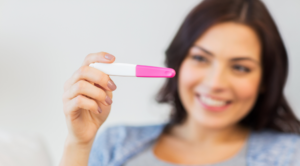Acupuncture is the ancient Chinese therapy that is used to balance and integrate your body’s energy systems to promote health and well-being.
The principle of acupuncture is to restore the normal flow of Qi through channels, known as meridians. This can be done by inserting needles at specific points along these pathways in the body.
There are a variety of ways acupuncture can help with fertility, including increasing blood flow, assisting negative feedback loop to balance hormones, and reducing stress. Acupuncture for fertility can be used as a complementary therapy with other treatments like hormonal treatments or IVF medications.
What are the Benefits of Acupuncture for Fertility?
Acupuncture has been found to help with infertility in multiple ways. It regulates ovulation cycles, promotes hormone release and increases blood flow to the pelvic area.
How Can Acupuncture Help with Fertility?
Acupuncture has been used for fertility for thousands of years. It is one of the most common and effective ways to improve fertility.
Acupuncture improves fertility by regulating hormones and increasing blood flow to reproductive organs. Acupuncture can also help to regulate menstrual cycles making it easier for a woman’s body to ovulate. Some studies have found that acupuncture also reduces stress, a common cause of infertility in women.
Commonly Used Herbs
- Goji Berries – Known for its powerful antioxidant properties, goji berries are usually dried before consumption. This Chinese herb for fertility protects the body’s DNA from free radical damage. Aside from improving reproductive function, it has even been shown to increase sex drive by increasing levels of sex hormones in the body.
- Wild Yam – TCM practitioners use wild yam to treat everything from uterine cramps to urinary tract infections to chronic pelvic pain to menstrual problems. It enhances and increases the amount of cervical mucus as well as optimizes estrogen levels. They also contain a natural form of progesterone, which helps to thicken the uterine wall, allowing for successful egg implantation in those who are trying to conceive.
- Black Cohosh – Black cohosh, also known as Actaea racemose, has been used for treating polycystic ovary syndrome (PCOS) as well as fertility.
Why You Should Try Acupuncture and Traditional Chinese Medicine
Acupuncture is one of the most effective, natural, and side effect-free treatments for fertility. Consider acupuncture and Traditional Chinese Medicine for these reasons:
- In the Chinese medical system, acupuncture does more than just treat signs and symptoms. It activates the body’s natural healing potential by addressing the root causes of the disease or illness.
- It is a completely natural healing method and drugs are never used..
- Through acupuncture and TCM, overall health and well-being can be strengthened, supported, and balanced, thereby increasing the effectiveness of other procedures.
Acupuncture can also be beneficial during pregnancy and delivery. As the World Health Organization points out, acupuncture has been shown to alleviate labor pain, nausea, and vomiting, as well as substantially reducing labor duration.
QUICK FACTS
One study found that acupuncture may improve the quality of life in patients undergoing in vitro fertilization (IVF). It was also found that women receiving acupuncture reported significantly less abdominal pain, other pain, nausea, and stress two hours after oocyte aspiration (egg collection) compared to women receiving conventional analgesia.
References:
- Lee J, Hyun M, Kim H & Kim D. (2021) Acupuncture and herbal medicine for female infertility: An overview of systematic reviews. Integrative Medicine Research (IMR)
- Quan K, Yu C, Wen X, Lin Q, Wang N & Ma H. (2022) Acupuncture as Treatment for Female Infertility: A Systematic Review and Meta-Analysis of Randomized Controlled Trials. Evid Based Complement Alternat Med.
- Zhu J, Arsovska B, & Kozovska K. (2018) Acupuncture Treatment for Fertility. Open Access Maced J Med Sci.



